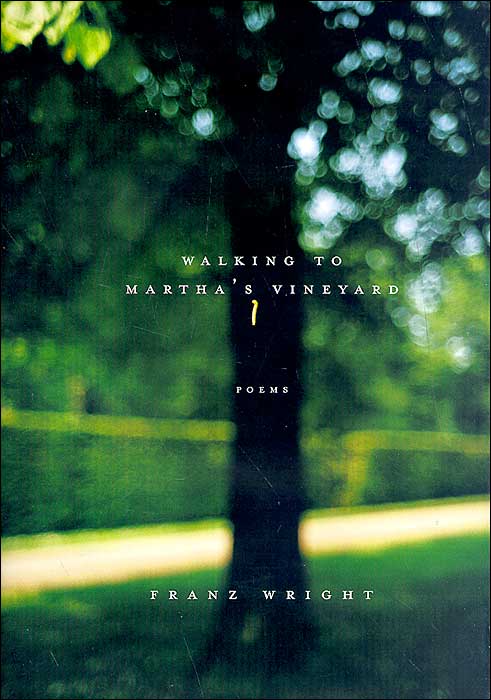Wright nearly always rewards us for our nosiness. Within two or three poems, a narrative of one man's struggle with death takes shape. “On Earth” crystallizes Wright's conundrum perfectly: “How does one go / about dying? / Who on earth / is going to teach me— / The world / is filled with people / who have never died.” Still, Wright presses onward, entering the underworld and the spiritual in the every day, trying to break down the barriers between living and the afterlife.
Indeed, there are tints of Emerson's concept of the Oversoul here—the invisible seeing-eye that both was the world and observed it. In “Weekend in the Underworld,” Wright asks his spirit where it lies. “Everywhere,” it responds. “I'm everywhere.” Occasionally, Wright's longing for transubstantiation gets the better of him, and his lines come out pantheistic. “[N]o one is a stranger,” he writes at the end of “Promise,” “this whole world is your home.”
If Emerson's poetry was famous for its internal logic and knotted spirituality, Wright's verse—with its brief lines and generous white space—is more ethereal. A typical Wright poem hangs on the page like fingerprints on a window frosted by winter. The tiny amount of space it assumes brings out graceful nuances and conveys the chill of the author's mournful quietude. On the other hand, certain poems feel a little slight— “Charlottesville Winter,” for example—like snapshots from a life never clearly unobserved.
A curious self-consciousness possesses these poems, as if Wright wrote them while sitting in front of a mirror. “Circle Drawn in Water” begins yet another inquiry, but boomerangs back to the tangible when the poet depicts himself “bent over a three-legged table” writing “these words I'm now writing.” “Childhood's Appointment” builds to a familiar epiphany, which Wright doesn't fail to note “introduced itself as I sat shivering on my old park bench.”
In a sense, Walking to Martha's Vineyard is the work of a man enraptured by discovery—but ever mindful of his own impermanence. It is a terrible position to be in. Since the moment Wright becomes aware of the world's beauty, he must let it go. The beautiful title poem echoes Matthew Arnold's great “Dover Beach,” only the confrontation with mortality is muted now, almost sepia-toned. As “wave after wave” rolls in, Wright notes how “the ocean smells like lilacs in late August.” And it will continue to—Wright sadly suggests—long after he's gone.









